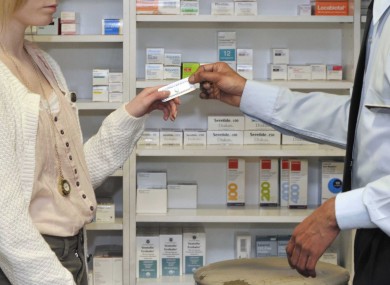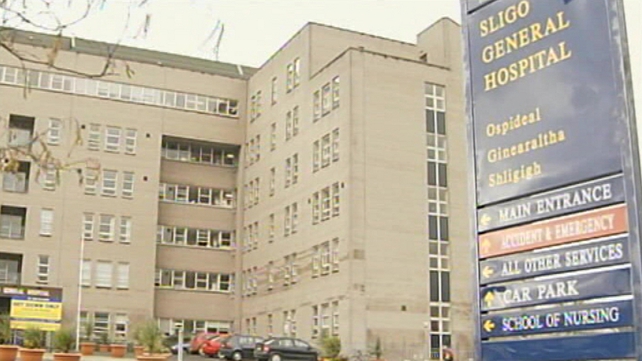Illegal goods trade in Ireland costs our economy €1.5bn


TRADE IN COUNTERFEIT GOODS IS COSTING THE IRISH ECONOMY €1.5BN EVERY YEAR, A NEW REPORT CLAIMS.
Research undertaken by accountancy firm Grant Thornton and Retail Ireland, which is part of business group IBEC, estimates that the trade in illicit goods, from cigarettes to software, results in a €937m loss to the Exchequer every year.
Its report reckons a further €547m is lost by retailers and intellectual property rights holders.
It says the €937m loss to the taxman is the equivalent to nearly 12pc of the total €8bn interest bill the Government will pay on the national debt this year.
The report has called for tougher legislation and harsher penalties for those caught red-handed. It has also called for a new committee to be established to tackle the trade.
“The Government should establish a committee comprising of both sector and state interests on illicit trade in Ireland, with the responsibility for implementing a new strategy,” it recommended.
“The committee would facilitate information-sharing and ensure that a co-ordinated approach is taken.”
It is estimated that between €142m and €261m a year is lost to the taxman due to illegal fuel laundering. Between another €240m and €569m is lost as a result of tobacco smuggling.
“Illicit trade is costing the Exchequer hundreds of millions of euro at a time when every cent of tax revenue is vital,” said Grant Thornton partner Brendan Foster.
“Businesses are finding it impossible to compete against fraudulent goods being sold by organised criminal gangs whose illegal actions must be stamped out to avoid further business closures and job losses.”
Digital piracy is estimated to be costing €269m a year, while €58m in lost corporation tax is attributed to consumers buying counterfeit commercial drugs.
Galway best placed to reap benefit from Irish Government’s new jobs strategy

Galway City is ideally placed to capitalise on the Government’s new strategy to boost manufacturing and stimulate growth and ‘kick-start’ the local economy, it has been claimed.
Galway West TD Brian Walsh has predicted that the city can win a ‘significant slice’ of the ambitious target of 20,000 new jobs in manufacturing by 2016.
Galway will also soon reap the rewards of the Government’s €2.25 billion economic stimulus package jointly announced by An Taoiseach Enda Kenny and Tánaiste Éamon Gilmore last year.
The stimulus package involves several school buildings programmes in the city, as well as the completion of the Galway-to-Limerick motorway – these will boost employment locally, directly and through ‘spin off’ employment, he said.
Deputy Walsh said the manufacturing jobs’ strategy announced during the week by Jobs Minister Richard Bruton, coupled with the stimulus package aimed at boosting employment locally with targeted projects, has the potential to reignite growth in the local economy.
He said among the measures to be introduced under the plan is a new start-up fund run by Enterprise Ireland to target supports for new manufacturing businesses and a new ‘capability fund’ to support capital investment by existing manufacturing firms.
Deputy Walsh said of particular interest in Galway, given that it’s home to so many multi-national companies, would be the measure to be undertaken by the IDA and Enterprise Ireland, to target additional financial supports for research and development investment.
“Manufacturing remains a key employer, particularly here in Galway and these new measures announced by the Minister have the potential to kick-start growth in manufacturing jobs in the city,” said Deputy Walsh.
He said the package is targeted at maximising opportunities for growth and attracting investment as well as ensuring workers are offered opportunities to up-skill and re-skill so that they have the relevant, quality skills for the jobs’ market.
FF senator calls for free vote on abortion


FIANNA FÁIL SENATOR AVERIL POWER HAS CALLED FOR A FREE VOTE IN THE PARTY WHEN THE X CASE LEGISLATION GOES BEFORE THE OIREACHTAS.
Power, who supports legislating for the X case, is among the party’s new representatives who was elected to the Senate in 2011 with the strong support of party leader Michael Martin.
Power, who is one of only two women in Fianna Fáil’s parliamentary party, was speaking to The Sunday Business Post ahead of this weekend’s Fianna Fail Ard Fheis in Dublin’s RDS.
“I think there should be a free vote. Regardless of what any other party does, I think it’s the right thing to do. People should be allowed to vote without the censure of the whip on issues of this nature, it happens in other countries,” she said.
Fianna Fáil is traditionally a ‘pro-life’ party and has not yet taken an official position on the X Case legislation. The party says it is awaiting publication of the heads of bill next week before it convenes a parliamentary party meeting on its position.
Power said she believed that there was a broader and more moderate view across society that supported legislating for the X Case, particularly in light of the tragic death of Savita Halappanavar.
But like Fine Gael, the party faces opposition in the party’s grassroots, and sections of the parliamentary party, in relation to the issue surrounding the threat of suicide.
Four motions are to go before the Ard Fheis tomorrow – all pro-life – and one of them calling for another abortion referendum. “There’s nothing in the motions that says we can’t have a free vote even if these motions are passed,” she said.
“We have to remember that two referendums that were put to the people to roll back the X Case were rejected. I don’t think it’s acceptable that we have another referendum,” Power said.
She said she had already outlined her views to Micheál Martin.
One in four Irish pharmacies are making a loss, A survey finds


One in four Irish pharmacies made a loss in 2011, according to a survey undertaken by Grant Thornton.
The survey, which measured the financial performance of Irish pharmacies in 2011, found that the average pharmacy contractor recorded a net profit margin of just four per cent. The average outlet net profit was down 17 per cent on the previous year.
The results were published today at the Irish Pharmacy Union’s National Pharmacy Conference.
The survey found that the government had already taken over €570 million in cumulative savings from fees paid to pharmacists since 2009, averaging approximately €340,000 per pharmacy.
“The pharmacy sector is stretched almost to breaking point and many long-standing, small businesses will struggle to survive,” said Rory O’Donnell, President of the Irish Pharmacy Union. “I am calling on the Minister to cease making arbitrary cuts to payments and to engage with healthcare professionals on a healthcare reform agenda that will deliver efficiencies and services to patients in their communities.”
New HIQA reports raise concerns over hand washing in a few Irish hospitals


NEW REPORTS FROM THE HEALTH INFORMATION AND QUALITY AUTHORITY SUGGEST THAT POOR HAND-WASHING PRACTICE IN SOME IRISH HOSPITALS IS POTENTIALLY PUTTING PATIENTS AT RISK.
HIQA has published four hygiene and infection prevention reports today, looking at Sligo General Hospital, Cork University Hospital, Wexford General Hospital and Letterkenny General Hospital.
At Sligo General Hospital, HIQA found much evidence of non-compliance with national standards.
It noted worn and damaged equipment and furniture, as well as chipped paintwork.
It said that in all three areas assessed, the physical environment and patient equipment were unclean.
It also said that that a culture of hand hygiene was not embedded at all levels.
At Letterkenny General Hospital, three clinical areas were unclean.
It noted that in the maternity ward, there was dust and dirt on the floors.
It found that baby baths were stored along the corridor and there was no system for cleaning the baby baths.
HIQA said there was no way of knowing whether or not the baths had been cleaned and this posed a risk to newborns of acquiring a Healthcare Associated Infection.
Hand hygiene was also highlighted with HIQA again noting that a culture of hand hygiene was not embedded at all levels in the hospital.
HIQA said that all the clinical areas assessed at Cork University Hospital, Cork Maternity Hospital and Mallow General Hospital, were clean.
However, there was little evidence to demonstrate a commitment to hand hygiene.
It found that despite concerns over low interest in hand hygiene training, there was no evidence of an effective executive response.
It also found that the hospital had failed to submit data to the HSE on hand hygiene compliance in 2011 and 2012. It has urged the hospital to address hand hygiene as a priority.
At Wexford General Hospital, HIQA said there was little evidence again of a commitment to hand hygiene.
Clinical areas were general clean it said but in the maternity ward HIQA noted that the corridor ceiling required urgent improvement.
Ceiling tiles were missing and HIQA said this should be addressed, to mitigate against the risk of patients and newborns contracting infections.
HIQA has made a number of recommendations to each hospital and inspectors will revisit them within six months.
The HSE said the HIQA reports show some improvement in hand hygiene rates but also highlight areas for further improvement.
It said that as part of the continued efforts to improve hand hygiene from July this year, it will be mandatory for all staff to receive hand hygiene training as part of staff induction.
The HSE is also planning a hand hygiene awareness week for staff in May.
The new ‘smart skin’ it’s so sensitive it rivals the real thing
Researchers say their experimental arrays sense pressure in the same range as the human fingertip, which could result in better bots and prosthetics.
Using what they are calling “mechanical agitation,” researchers out of the Georgia Institute of Technology say they’ve developed arrays that can sense touch with the same level of sensitivity as the human fingertip, which could result in better bots and prosthetics.
The transparent and flexible arrays use about 8,000 taxels, which are touch-sensitive transistors that can generate piezoelectric signals independently — meaning they emit electricity when mechanically agitated. As the researchers report this week in the journal Science, each of those thousands of transistors comprises a bundle of some 1,500 zinc oxide nanowires, which connect to electrodes via a thin layer of gold, enabling the arrays to pick up on changes in pressure as low as 10 kilopascals — which is what human skin can detect.
“Any mechanical motion, such as the movement of arms or the fingers of a robot, could be translated to control signals,” lead author Zhong Lin Wang of Georgia Tech’s School of Materials Science and Engineering said in a news release. “This could make artificial skin smarter and more like the human skin. It would allow the skin to feel activity on the surface.”
Mimicking the sense of touch electronically has long been the dream of many a researcher, and has been accomplished by measuring changes in resistance. But the team at Georgia Tech experimented with a different approach, measuring tiny polarization changes when piezoelectric materials such as zinc oxide (in which current can accumulate) are placed under mechanical stress. In these transistors, then, piezoelectric charges control the flow of current through the nanowires.
“This is a fundamentally new technology that allows us to control electronic devices directly using mechanical agitation,” Prof Wang said. “This could be used in a broad range of areas, including robotics, MEMS, human-computer interfaces, and other areas that involve mechanical deformation.”
Time will tell whether this tech will find its way into military uses; the work is funded by the Defense Advanced Research Projects Agency, the U.S. Air Force, the U.S. Department of Energy, the National Science Foundation, and the Knowledge Innovation Program of the Chinese Academy of Sciences.


No comments:
Post a Comment